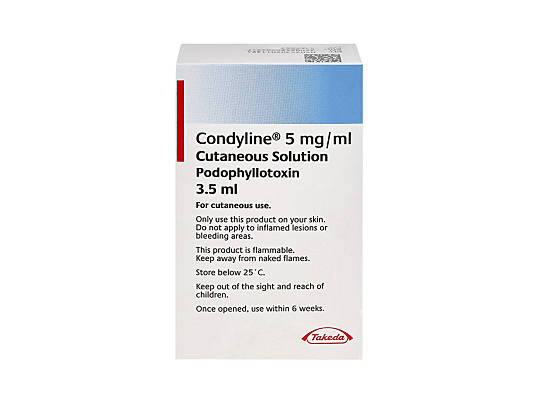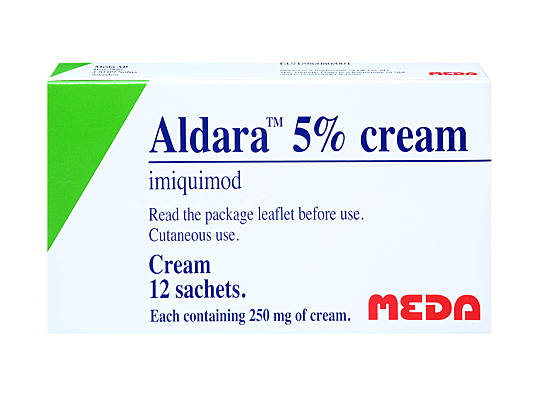Genital Warts Treatment
Order an online consultation and prescription for genital warts treatment.
Simply fill in a brief questionnaire. One of our doctors will review your order and prescribe a suitable treatment. How to Order
Condyline is a topical solution for treating genital warts.
Our service allows you to order a prescription for Condyline without having to see a GP face-to-face.
If you think you may have genital warts, you can complete our brief online questionnaire, with the option to choose your preferred treatment.
One of our doctors will check if the medication is suitable for you and issue your prescription to a local pharmacy in Ireland, or you can choose to have your medication delivered directly to your door.
A consultation for genital warts treatment prescription costs €21.50.
Genital warts treatments

No results found.
Please check your spelling or try another treatment name.



What are genital warts?
What are genital warts?
Genital Warts are caused by a viral skin infection called the human papillomavirus (HPV). They are skin-coloured bumps or growths that appear on the genital area (penis, vagina or around the anus). They do not normally hurt or cause any long-term harm, but they can look unsightly and many people feel distressed by them. They are very common in England – they are the second most common sexually transmitted infection after Chlamydia.
HPV infects a type of tissue called epithelial tissue which is found in the anus, the female genitalia (vagina, vulva and cervix) and the mouth. The most common way for people to get infected is sex (vaginal or anal), but HPV can also be passed on via oral sex, sharing sex toys and non-penetrative genital to genital contact. A mother can also pass HPV to her baby when she gives birth.
What is the best treatment for genital warts?
There is no single best treatment for genital warts because the warts come in very diverse shapes, sizes, types and are located in different parts of the body. Treatments range from topical creams that either boost your immune system or dissolve the wart, to surgical treatments (cryosurgery, surgical removal, electro-cauterization or laser therapy), or using a chemical acid that burns off warts.
People react differently to different genital warts treatments. Some people will require several weeks of treatment - or several visits to the doctor - to get rid of their warts. If you are pregnant, make sure to tell your doctor or health care provider, since certain types of medications for genital warts may be harmful to the foetus.
Can I use over-the-counter treatments?
Do not use over-the-counter treatments for genital warts. These medications are for other types of warts (on the face or hands) and they will only cause you pain and irritation. Unfortunately, genital warts are harder to get rid of and most often you will need a prescription medicine from a doctor. Your doctor will assess which treatment is best for you, depending on the number of your warts, their location and the state of your immune system.
Statistics
The Health Protection Agency reports that, in 2017, there were 59,119 new cases of genital warts diagnosed at sexual health services in England. In the same year, there were 203,116 new cases of chlamydia.
Sexually active teenagers and young adults are the people who most commonly catch genital warts.
What causes genital warts?
Genital Warts are caused by a viral skin infection called the human papillomavirus (HPV). HPV is a family of more than 100 viruses. Most people who have been infected with HPV do not know they have it, because they do not have any symptoms. 9 out of 10 cases of genital warts are caused by just two strains of HPV (type 6 and type 11).
Genital warts are spread by skin to skin contact. You can get them by having sex (anal or vaginal), but you can also get them if you do not have penetrative sex, but have genital contact, oral sex, or if you share sex toys. A mother can also pass HPV to her baby when she gives birth.
It can take as long as a year for the warts to appear if you have contracted HPV, so if your partner grows warts it does not necessarily mean they have been having sex with someone else.
You are more likely to pass the warts to someone else if you have skin to skin contact while the warts are there, but you can infect another person with HPV before the warts appear or after they have gone. Using condoms can help cover up some warts, but this may not provide full protection because the skin around your genitals can also become infected and will not be covered by the condom.
Who gets genital warts?
Sexually active teenagers and young adults are the people who most commonly catch genital warts; the highest rates are in men aged 20-24 and women aged 16-19. However, anyone can get genital warts because they are caused by skin to skin contact. If your genitals come into contact with another person’s and they have the strain of HPV that causes genital warts, you can catch them.
How is the infection diagnosed?
You need to seek medical advice to diagnose genital warts. If you are not a trained healthcare professional, it is possible to mistake a growth for a wart. The growth could be much more serious than a wart, so you need to get it checked.
The healthcare professional will examine the area you are worried about. They might use a magnifying glass to see the warts better. Women will also have the inside of their vagina examined using a speculum – a special instrument that includes a torch and a mirror. If your healthcare professional is worried the warts may have spread inside your anus or urethra, they might suggest further tests.
Unlike treatments for other warts, you cannot buy treatment for genital warts over the counter. It is only available on prescription. You might also need a healthcare professional to apply the treatment.
You can get a diagnosis at your local sexual health clinic or, if they have one, attend a Genitourinary Medicine (GUM) walk in surgery. These clinics are available for everyone to use confidentially, regardless of age. If you are too young to be legally having sex, the staff at the clinic will not tell your parents. The clinics are free.
What are the long-term issues?
Genital warts will not usually cause you any harm long-term. You may not like the way they look; they can be uncomfortable, and their presence might be psychologically distressing. If you do not treat your genital warts, in time they might go away by themselves. They might also grow, stay the same or multiply. Normally most warts disappear by themselves, in time, without treatment, but this can take ages.
It is better to get the warts diagnosed and checked by a doctor, even if you do not intend to treat them. If you are not trained, it is very easy to confuse a more serious growth for a wart, so you need to get a professional opinion to be sure.
After treatment, what should I expect?
It can take several months to get rid of genital warts, so you need to persevere with the course of treatment as advised.
After physical ablation, you can expect the place where the warts have been removed to be sore for a few weeks. You will also most likely experience some irritation. This should heal within 2-4 weeks.
After you complete the course of topical treatment, most side effects should have passed within 2 weeks.
Do I need a prescription?
Yes. Unlike treatments for other warts, you cannot buy treatment for genital warts over the counter. It is only available on prescription. You might also need a healthcare professional to apply the treatment, because administering some treatments needs professional training.
Should I tell my sexual partner(s)?
Yes. If you are diagnosed with genital warts, it is better for your partner to get a check-up, in case they also have warts that they might not have noticed.
When can I have sex again?
You should avoid having sex while you have got genital warts. Instead, you should follow the treatment as prescribed and wait for it to take effect. You need to give the warts time to heal. Sex can make them bleed and slow down your recovery. By not having sex, you will get back to normal quicker. You will also be less likely to pass the warts on to your sexual partner.
Even after the warts have cleared up, you can still have traces of HPV in your skin cells. For this reason, to be on the safe side, use a condom for the first three months after the warts have cleared up.
Will it affect my fertility?
There is no evidence to suggest that having genital warts will affect your fertility.
What do the warts look like?
They are skin-coloured bumps, fleshy growths or changes to the skin that appear on the genital area (penis, vagina or around the anus). In women, genital warts normally start as small gritty lumps that grow larger. In men, genital warts normally look more like the type of warts you might see on a person’s hand – raised, hard and with a rough surface. People can have just one wart, or they might get a cluster of warts that together, make up a sort of cauliflower formation.
Topical genital warts treatments
The first is known as a topical treatment which means that a cream, lotion or a chemical is applied directly onto the warts. This kind of treatment tends to work better on softer warts.
The most common topical treatments include:
- Podophyllotoxin (sometimes known as podofilox or warticon): This works by poisoning the cells of the warts. It is recommended for small clusters of warts. It comes as a liquid and is dripped onto the wart using a special application stick. The skin might feel mildly irritated when you apply it. You should put it on in cycles – so you apply it twice a day for three days, then take a rest cycle where you do not apply the liquid for four days. Following this cycle, most people find it takes 4 or 5 weeks for their warts to clear up. It is generally very effective at clearing genital warts.
- Imiquimod: This works by stimulating your immune system to fight off the warts. It is recommended to treat larger warts. It is a cream that you put onto the warts. You wash it off 6-10 hours after you have applied it. You should do this three times a week, for several weeks before you see an improvement. Imiquimod does have some common side effects, which include hardening of the skin and flakiness, swelling, a burning or itching sensation after applying the cream, headache. Normally these side effects are quite mild, and they go away within two weeks of finishing treatment. Imiquimod is effective for about 50% of patients.
- Trichloroacetic acid (TCA): This works by destroying the proteins in the cells of the warts. It is recommended for small warts that are very tough/solid. TCA is the safest of all the topical treatments for use when pregnant. TCA can damage healthy skin if you do not put it on correctly, so you will be asked to attend your GUM clinic once a week to have it applied by a qualified professional. Most people feel an intense burning sensation for 5-10 minutes after TCA is applied. TCA treatment effectively removes warts up to 88% of the time after 6 to 10 weeks of treatment.
Note: The wart creams that you can buy over the counter in pharmacies are designed to deal with warts on your hands or verruca on your feet. They are not suitable for treating genital warts.
Physical ablation
The second kind of treatment is known as physical ablation. This should be carried out by a qualified healthcare professional. In this treatment the wart is destroyed by an external force, like a laser or electricity. Physical ablation tends to work better on hard, tough or rough feeling warts.
- Cryotherapy or freezing off the warts is usually suggested for treating groups of small warts, especially if they are on/near the vulva or on the shaft of the penis. Cryotherapy uses liquid nitrogen to freeze the wart. This kills the cells of the wart by splitting their outer membranes. After the wart is frozen, it is left to thaw out and if necessary, the treatment is repeated. While the warts are being frozen, you will feel a burning sensation. After the warts have been frozen, you will probably get some blisters, skin irritation and pain on and around the site of the wart. It takes 1-3 weeks for your skin to heal after the wart has been frozen – do not have sex until the skin has healed properly.
- Excision is where the warts are cut away. It is normally used for small, hard warts or clusters of warts that have formed a cauliflower shape. Before the procedure begins, you will be given a local anaesthetic. The wart will then be removed with a scalpel and the wound will be stitched up. Excision can leave a scar, so it might not be the best option for large warts. The skin will be sore for 1-3 weeks afterwards. Avoid sex until the skin has healed fully
- Electrosurgery is normally used after excision if there is a particularly large wart near to the anus or vulva and if topical treatments have not worked. In this procedure, most of the wart is cut away, then an electric current is passed through a metal loop which is pressed against the wart to burn away the remaining part of it. If you are having lots of warts removed in this way, it can hurt quite a lot, so often your doctor will give you a regional anaesthetic (that numbs you everywhere from below the spine down). In extreme cases, a general anaesthetic might be given.
- Laser surgery uses a laser to burn away warts that cannot be reached by other types of physical ablation (for example, if the warts are deep inside your anus or urethra). It is done under local or general anaesthetic. Laser surgery might also be suggested for pregnant women who did not have success with the topical treatment TCA. You will probably be sore and find the skin is irritated at the site where you had the warts, but this should heal in 2-4 weeks.
In some cases, your healthcare practitioner might suggest using both a topical treatment and physical ablation. It can take several months to get rid of the warts, so you need to persevere and follow the course of treatment advised.
Cautions, risks, side effects, interactions
It is not understood why, but smokers tend to find the topical creams less effective at curing their genital warts than non-smokers. You might want to stop smoking to make your treatment more effective and speed up your recovery.
Condyline
Active ingredient: podophyllotoxin.
Side effects:
- Bad odour (solution only)
- bleeding of treated skin
- blistering, crusting, or scabbing of treated skin
- bloody urine (solution only)
- burning feeling of treated skin
- dizziness (solution only)
- headache (gel only)
- itching of treated skin
- pain during sexual intercourse (solution only)
- pain of treated skin
- problems with foreskin of penis (solution only)
- redness or swelling of treated skin
- scarring of treated skin (solution only)
- skin ulcers of treated skin
- vomiting (solution only)
Aldara
Active ingredient: imiquimod.
Side effects: Can cause skin reactions and may damage healthy skin. Imiquimod does have some common side effects, which include hardening of the skin and flakiness, swelling, a burning or itching sensation after applying the cream, and/or a headache. Normally these side effects are quite mild, and they go away within two weeks of finishing treatment.

Dr Kathryn Basford is an IMC and GMC registered GP who works with our Irish team here at ZAVA. She graduated from the University of Manchester and completed her GP training at Whipps Cross Hospital in London.
Meet our doctorsLast reviewed: 08 Jan 2021





